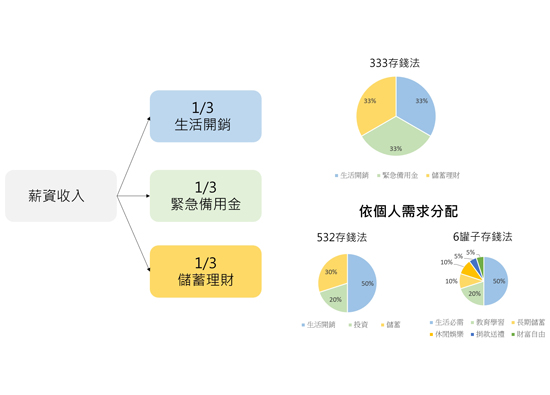02.2024 Life Guide
Don't let gastroenteritis affect you during the Chinese New Year period
Dr. Lv Zhenyan from the Department of Hepatobiliary Gastroenterology at Far Eastern Memorial Hospital /


 Gastroenteritis is a common disease in children, but it is not uncommon in adult populations. The causes include bacteria, viruses, parasites, or food contaminated with toxins. Especially around the Lunar New Year, frequent gatherings make it particularly important to prevent gastroenteritis. In this issue of "Health Column", we invite everyone to come together to protect intestinal health.
Gastroenteritis is a common disease in children, but it is not uncommon in adult populations. The causes include bacteria, viruses, parasites, or food contaminated with toxins. Especially around the Lunar New Year, frequent gatherings make it particularly important to prevent gastroenteritis. In this issue of "Health Column", we invite everyone to come together to protect intestinal health.Gastroenteritis is generally divided into two types: non infectious and infectious. The former is mainly caused by non infectious food toxins or drug toxicity, while the latter is usually caused by bacteria or viruses (such as bacterial gastritis and viral gastritis); If the course of the disease exceeds 7 days, it may be caused by parasites or other causes.
How is gastroenteritis transmitted and developed?
The main transmission route of gastroenteritis is fecal oral transmission, where the patient comes into contact with food, utensils, or water sources contaminated with droplets, vomit, or excreta, or ingests food contaminated with bacterial toxins. After the bacteria and toxins enter the human digestive tract, the gastrointestinal tract cannot move normally and function properly, leading to symptoms such as fever, nausea, vomiting, diarrhea, and abdominal pain.
Bacterial gastroenteritis
The pathogenic bacteria of bacterial gastroenteritis include Vibrio parahaemolyticus, Salmonella, pathogenic Escherichia coli, Staphylococcus aureus, Bacillus cereus, and Vibrio cholerae, among which Salmonella is more common in summer. In addition to fever, nausea, vomiting, diarrhea, and abdominal pain, patients are also prone to bloody and purulent stools. As for other infectious diseases with strong transmission and severe symptoms, such as bacilli dysentery, cholera, typhoid fever, paratyphoid fever, and intestinal hemorrhagic Escherichia coli, they are all listed as statutory infectious diseases and are relatively rare in Taiwan.
Viral gastroenteritis
Viral gastroenteritis is mainly caused by rotavirus, Norovirus, Adenovirus, Sapovirus, and Astrovirus. In Taiwan, the main epidemic season for rotavirus and norovirus is from November to March of the following year; Adenovirus can occur throughout the year. In addition, rotavirus, adenovirus, sabovirus, and astrovirus are more common in children under 5 years old, especially rotavirus, which is the most common cause of diarrhea in infants and children under 5 years old; Norovirus, on the other hand, can be transmitted to any age group and is more common in densely populated areas such as schools, hospitals, military camps, shelters, and nursing homes. It also frequently occurs in restaurants, large cruise ships, dormitories, and camping sites. In all cases of acute diarrhea, the proportion caused by Norovirus is as high as 50%, which cannot be ignored.
Patients infected with viral gastroenteritis may experience symptoms such as fever, abdominal pain, stomach pain, nausea, and flu like muscle soreness, in addition to excessive diarrhea and vomiting. However, most patients can recover with their own immune system and rarely leave any sequelae.
Management principles and treatment of gastroenteritis
Exhalation and diarrhea are the most common symptoms in patients with gastroenteritis, so it is important to supplement water and electrolytes. Most patients with mild "viral gastroenteritis" do not need to receive antibiotic treatment, but can take supportive therapy (it is recommended to fast for the first 1 to 2 days, and only supplement water and electrolyte, such as drinking 1:1 diluted sports drinks or electrolytic water, so that the gastrointestinal tract can have a full rest. After the symptoms improve, you can start to try rice soup, and then gradually eat white porridge or other light diet, pay attention to a small number of meals, and avoid irritating food), If there is no improvement after two days of supportive therapy, medical attention should be considered.
Infants and young children under the age of 5 are at high risk for gastroenteritis, and they usually fast for about 4-6 hours to gradually return to normal eating. Babies can be re fed with breast milk or formula milk, while older children can be given rice soup, porridge, apples, white toast, etc. If diarrhea improves, they can continue to eat as usual, but still avoid greasy foods and sugary drinks. Through the above treatments, most cases of gastroenteritis can be relieved.
However, if there is persistent vomiting, uncontrollable diarrhea (more than 6 times a day), high fever lasting for 2-3 days or more, strong abdominal pain, bloody or purulent stools, unclear consciousness and drowsiness, severe dehydration (increased breathing and heartbeat, decreased blood pressure, dry oral mucosa, reduced urine output), etc., it is necessary to seek medical attention as soon as possible, and in severe cases, hospitalization may even be necessary.
Preventing gastroenteritis
Frequent hand washing is the most important method to prevent gastroenteritis. Before eating, entering and exiting public places, handling fresh food, and after using the toilet are all times to wash hands. Avoid touching the mouth and nose mucosa with your hands when going out, and wash your hands first after returning home to reduce the chance of getting sick. If there are sick people at home, it is even more important to pay attention to personal hygiene. Using public chopsticks and washing hands frequently can reduce the risk of cluster infections.
In terms of diet, due to the weak resistance of young children and the elderly, it is best to fully cook seafood, meat, eggs and other foods before consumption. In addition, it is necessary to pay attention to the freshness period of the food, and pay attention to personal, environmental, and dietary hygiene in order to safely and happily celebrate the holiday.
*Dr. Lv Zhenyan's expertise includes: general internal medicine diseases, digestive system diseases, liver, gallbladder, and pancreatic diseases, abdominal ultrasound examination, upper and lower gastrointestinal endoscopy examination, etc.
#




















